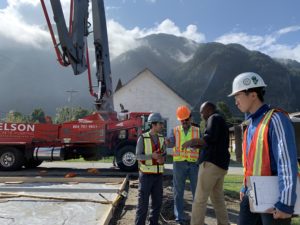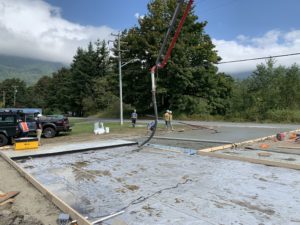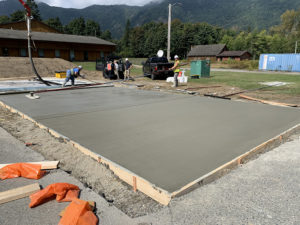On August 20th, 2019, IC-IMPACTS successfully deployed an advanced self-repairing pavement technology in Chawathil First Nation, Hope, British Columbia.

This fiber-reinforced concrete was developed by IC-IMPACTS CEO & Scientific Director, Dr. Nemy Banthia, and his research group SIERA (Sustainable Infrastructure Research Group) at the University of British Columbia. The internally cured concrete pavement utilizes scrap tire fibers, cellulose fibers, and other recycled materials, and has the ability to “self-heal”. The innovative pavement will thus require less maintenance and will last much longer than traditional concrete pavements. The added fibers restrict cracking and provide resilience against everyday wear and tear.
They also provide resistance to freeze-thaw cycles that come with harsh winters in Canada. In addition to improving the longevity of concrete, adding these fibers reduces landfill waste through the re-use of scrap tires and other recycled materials.
The self-healing pavement will serve as a 26m x 18m parking lot. In order to monitor the performance of the pavement, the team has embedded 30 solar-powered sensors that will transmit data over the internet to UBC-SIERA researchers. These health-monitoring sensors will provide 24/7 data that will enable efficient future designs and improvements in the self-healing pavement technology. An official handover ceremony will take place sometime this fall, 2019.
IC-IMPACTS would like to thank our partners at WDusk Energy Group, Atlantis Holdings Ltd., Canfor, and Liberty Tire for their support. A similar version of this technology was installed in the community of Thondebhavi, India in 2014.


2024 IC-IMPACTS Conference in Delhi December 9 - 11, 2024 New Delhi, India